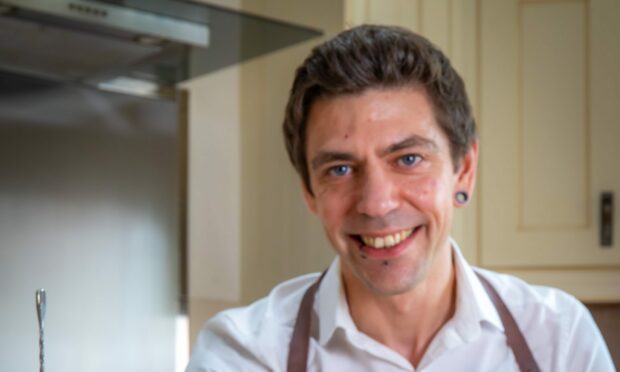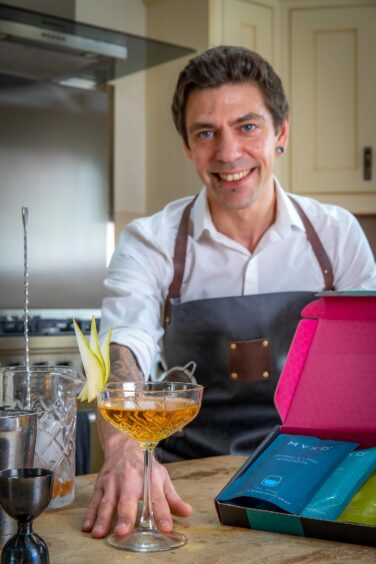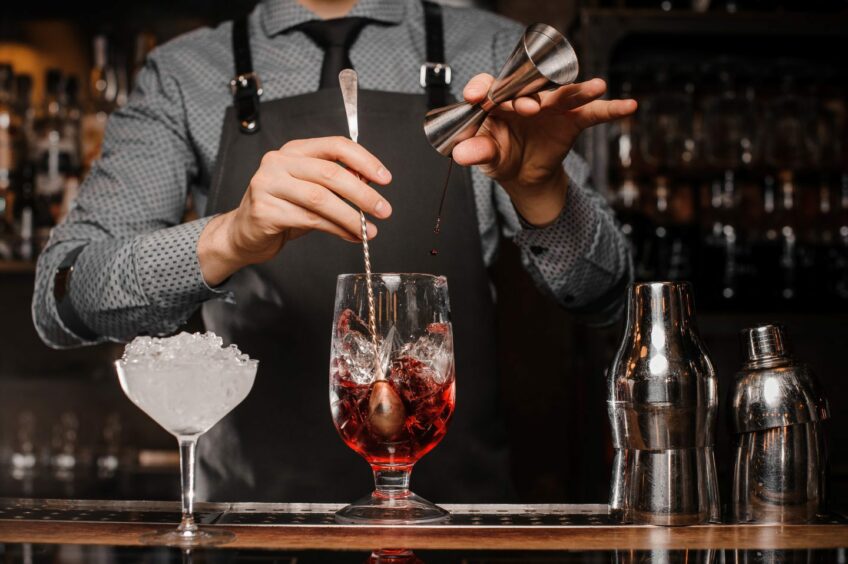For years, Grant Murray thought drinking to excess was just part of being a bartender.
The late nights, partying with customers, mixing potent new drinks – this was the life of those that work in cocktail bars.
So when the drinking became too much and he decided to quit for the sake of his health – and his new baby daughter – he was worried he could never tend bar again.
After all, he didn’t know any other bartenders that didn’t drink. It just wasn’t the done thing.
But, as it turned out, it was only by quitting alcohol that he got good at his job. Really good.
“A lot of my big successes in my career have come since I stopped drinking,” says Grant, who in 2016 –about a year after he decided to quit alcohol – beat 2,500 other bartenders from 46 countries to come top of a global bartending competition.”
‘Bartending was half about the party for me’
With thousands of people around the country taking part in Sober October this month, the Press & Journal is casting a spotlight on people like Grant who work with alcohol but don’t drink.
For those who decide to stop, it is often a life-changing decision. However, it is also one complicated by the pressures hospitality workers face including long days and late nights and, of course, easy access to alcohol.
Take, Grant, for example. From Inverness, he started working in bars when he was 18. The realisation he was drinking too much was a long time coming.
“Bartending was half about the party for me,” says Grant, now 36 and a director of Inverness bar group Cru Hospitality “It’s a fun industry to be in especially if you’re partaking.”
Though he says the alcohol didn’t affect his personality – “I was never a bad drunk, I was quite a fun person to be around” – it was when he tried to cut down that he realised it had a hold on him.
“You start making excuses to drink and it just spirals, or it does for me,” he recalls.
What finally worked was a decision to stop completely. Further motivation was the birth of his daughter seven months previously.
“I was like, well, I’m just done drinking. It then became easier to stay away from it.”
‘I felt like I was being viewed as boring’
Once he’d stopped, his concerns shifted to the effect it would have on his career. This was when he witnessed the pressure from within bartending that is around alcohol.
“I got a couple of step-backs from people, specifically in London,” he explains.
“At competitions, when they found that I didn’t drink, they would say ‘oh’. I felt like I was being viewed as boring or something. It was a weird kind of feeling.”
Grant says this reaction was “drastically in the minority” and most people were hugely supportive.
However, it was clear to him that when it came to bartending, he was unlike most others in the business.
“I don’t know many sober bartenders, or sober people in the industry at all really,” he says.
There was one notable expectation.
Jack McGarry is a leading bartender and the co-owner of top New York cocktail bar Dead Rabbit. Around the time Grant was thinking of quitting, Jack was causing a stir in the industry about his own struggles with alcohol and his determination to quit.
To Grant, who was searching for support, Jack’s story proved inspirational.
“The fact that he’d done it, and was so high profile, said to me it’s possible,” says Grant. “Let’s see if I can do it.”
‘Do you think maybe I have a problem?’
In a pleasing turn of events, it is now Grant’s story inspiring the next generation of bartenders.
Joe Martin worked under Grant at bars in Inverness. So, recently, when he started to suspect his drinking was adversely affecting his life, he knew exactly where to turn.
The 28-year-old’s question for Grant was simple.
“I asked him: ‘Do you think maybe I have a problem?'” says Joe.
Grant’s advice was that he’d seen far worse relationships with alcohol.
But the experience has motivated Joe to do Sober October this month for the first time. He’s keen to see what difference it makes to his work, and to his life in general.
In preparation, Joe has joined a gym. And he’s taken up a new hobby: geocaching, best described as a treasure hunt crossed with orienteering in which people use GPS to search for buried containers.
“I’m quite excited to see the health benefits of it, mentally and physically,” says Joe. “I want to take advantage of it to press on with forming good habits.”
‘You can’t work in a bar and not drink’
Joe, who is currently the Aberdeen general manager for city takeaway company Aberdam, knows he is fortunate to have Grant as a role model.
But he believes there is not yet enough support within bartending circles for people who want to quit alcohol.
For example, Joe vividly remembers a colleague telling him early in his career that “you can’t work in a bar and not drink”.
And while that attitude has changed over the past few years, hospitality life still leans heavily on alcohol.
“When you finish work for the day, the socialising is your drinking,” Joe says. “I couldn’t really imagine doing much with the majority of [my colleagues] that didn’t involve drinking.”
For Grant, who has been in the business longer, the industry is far less soaked in alcohol than it used to be.
“Bartenders are much less the party animals than they were 10 years ago when I was at the peak of running bars,” he says. “It’s not perfect but there is a better drinking culture within hospitality.”
But he also makes himself available to anyone looking for advice.
“I’ve had some great chats with people in the industry who want to discuss their own relationship with alcohol,” Grant says. “Not everybody gets to the point where they feel like they need to stop, but perhaps they feel like they would benefit from doing so.”
Down to one last vice
These days, Grant busies himself with his family as well as a running the cocktail mixer company he started in lockdown.
The Inverness-based MYXD makes flavour packs that allows any bar to create professional level cocktails, or for people to make them at home. In June, the company signed a deal with UK hotel group Radisson.
As for addictions, he’s now a self-confessed coffee snob. And he hasn’t yet kicked his nicotine habit, a more resilient legacy of his time as a bartender.
For the time being, however, he’s comfortable with the smoking.
“It’s like my one vice,” he says. “I’m allowed to have one vice.”
Are you doing Sober October? Let us know in the comments below.





Conversation